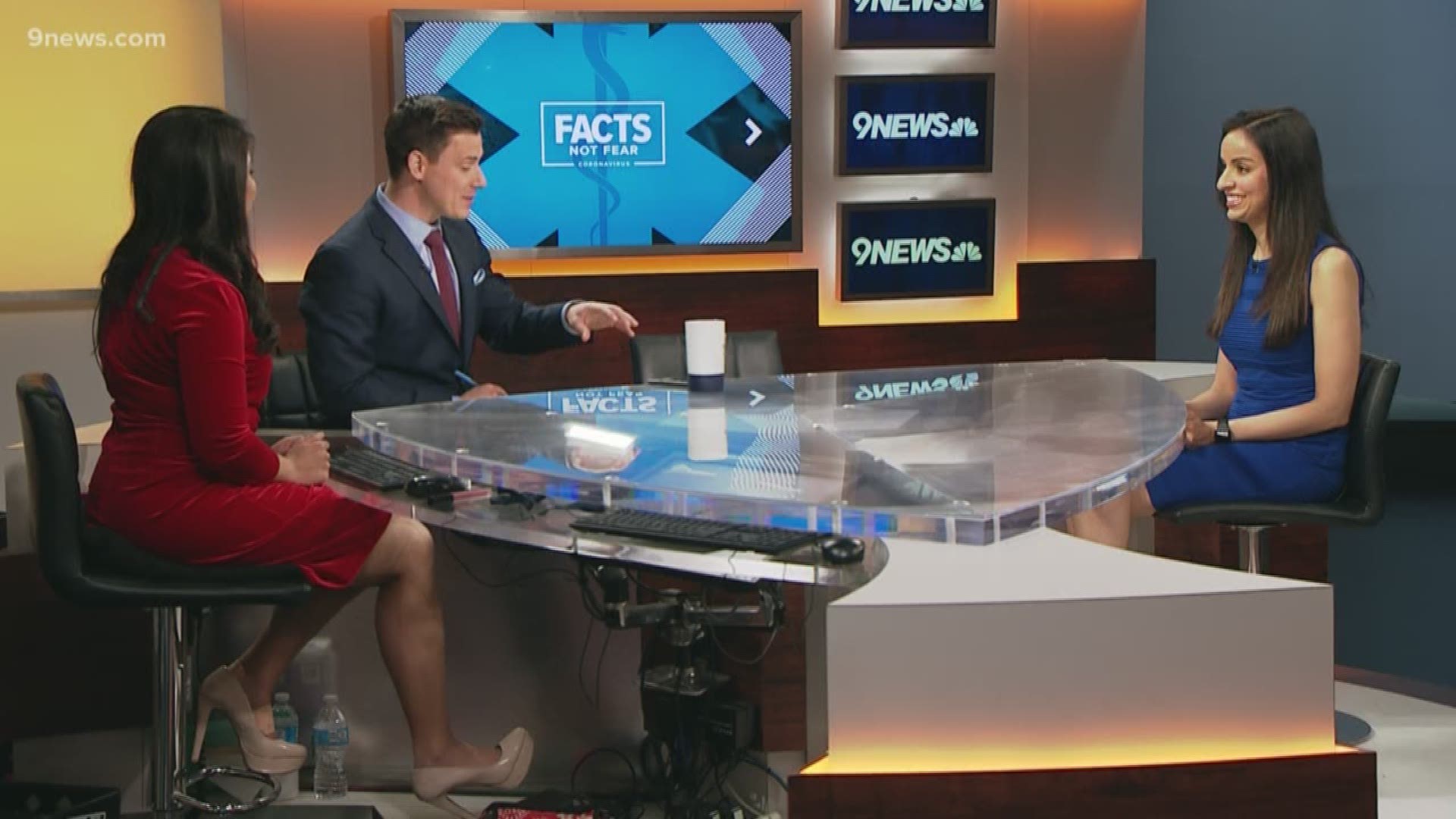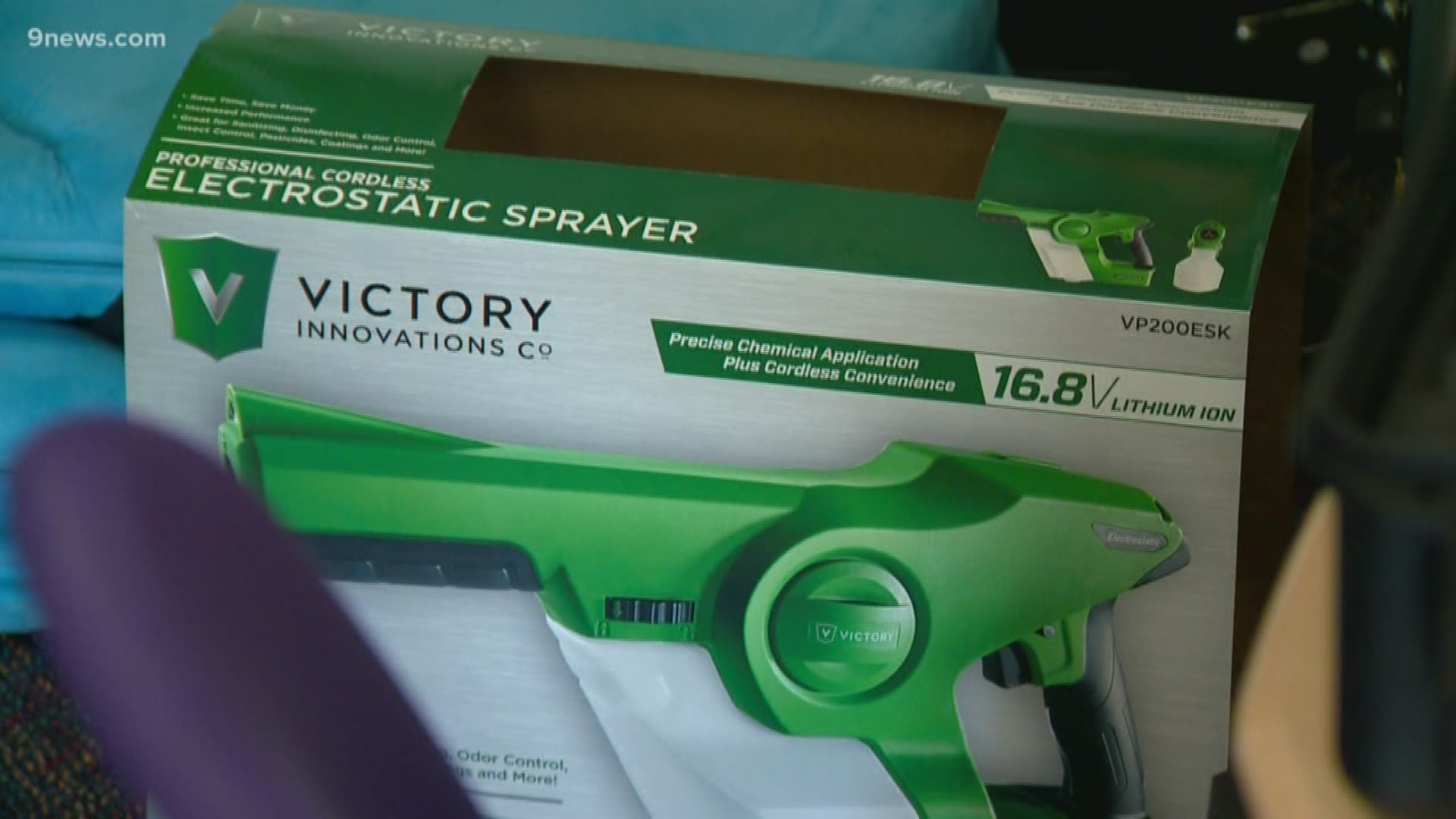DENVER — After people tried to access services at the state health department’s administrative offices in Glendale (which does not provide clinical services), the Colorado Department of Public Health and Environment (CDPHE) is sharing what to do if you think you have COVID-19, a new strain of coronavirus.
If a person is exhibiting symptoms, the person should go to a medical provider, like a clinic or hospital, ONLY AFTER calling the provider. If appropriate, the provider will give them instructions on where to go for care and testing.
If a person is exhibiting symptoms of COVID-19, like a fever, coughing, or shortness of breath, and has not yet been tested, the following steps are advised by CDPHE:
- The person should abstain from all public gatherings.
- The person should increase distance from close contacts. Six feet is a distance that reduces risk of transmission of the virus, spread mainly through coughing and sneezing.
- The person should continue to practice basic hygiene like hand-washing with soap and water; in the absence of soap and water, use hand sanitizer with at least 60% alcohol; cover coughs and sneezes with a tissue, then throw the tissue in the trash; avoid touching your eyes, nose, and mouth with unwashed hands.
- The person should call a medical provider or nursing line before going into a health facility.
- If instructed to seek care, follow the precautionary advice of the medical provider BEFORE going into any health facility.
- The medical provider will evaluate the patient and determine if testing is needed for influenza, other respiratory illness, and COVID-19.
- If a patient needs to be tested for COVID-19, the medical provider will collect a specimen from the patient’s nose and throat and send the samples to the state lab or a commercial lab that is capable of doing COVID-19 testing.
- The state lab must prioritize tests that meet the current criteria.
COVID-19 testing criteria
- The patient has a fever or signs/symptoms of lower respiratory illness, such as cough or shortness of breath, and the patient has been in close contact with someone confirmed with COVID-19, within 14 days of when symptoms started.
- The patient has a fever or signs/symptoms of lower respiratory illness (and other diagnoses such as influenza have been ruled out), and the patient recently traveled to parts of the world where infection rates are high or community spread is occurring, within 14 days of when symptoms started.
- Severe acute lower respiratory illness (e.g., pneumonia, ARDS) requiring hospitalization and without an alternative explanatory diagnosis (e.g., influenza)
The state lab doesn't charge for the actual laboratory testing of specimens, and the governor has ordered state-regulated health insurers to eliminate costs for people to get examined for COVID-19.
Additional clarifying information on tests:
- The state is expecting 700 more test kits from the CDC, and it currently has 900.
- The state lab has the capacity to do 160 COVID-19 tests per day but must prioritize testing specimens that meet the current criteria.
- State lab practice is to test two specimen samples per patient, which requires two tests.
- The state is working on increasing testing capacity.
Preventive steps
- Practice good hygiene. Thoroughly wash your hands with soap and water; in the absence of soap and water, use hand sanitizer with at least 60% alcohol; cover coughs and sneezes with a tissue, then throw the tissue in the trash; avoid touching your eyes, nose and mouth with unwashed hands.
- Stay home if you’re sick; keep your children home if they are sick.
- Stay informed with reliable, up-to-date information. People who have general questions about coronavirus disease 2019, can call CO HELP at 303-389-1687 or 1-877-462-2911 or email them at COHELP@RMPDC.org, for answers in English and Spanish (Español), Mandarin (普通话), and more.
- Be prepared. FEMA guidance for pre-pandemic COVID-19 preparedness is available on Ready.gov. Helpful information about getting your household ready for coronavirus is available on CDC’s website.
SUGGESTED VIDEOS: COVID-19 coronavirus


